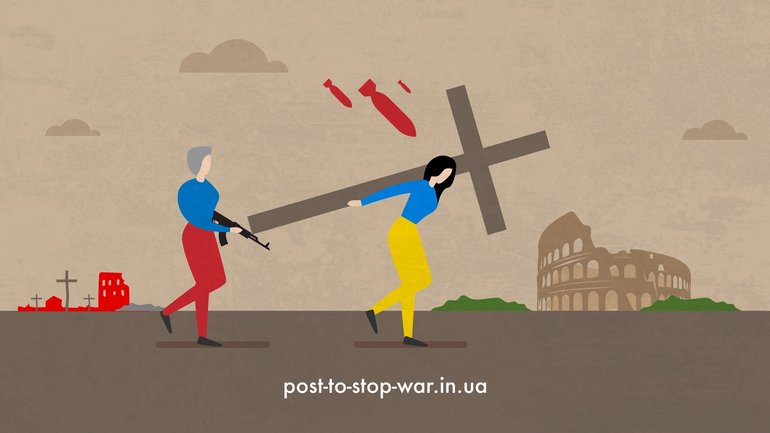Ukrainian Catholic media not to broadcast the current Cross Procession from the Vatican

Such internet media as Live TV of the UGCC, Catholic magazine CREDO, Radio Maria and EWTN Ukraine refused to broadcast this Cross Procession from the Vatican.
These media outlets covered almost all important events from the Vatican until recently. The last event that attracted the attention of Catholics was the dedication of the pontiff of Russia and Ukraine to the Immaculate Heart of Mary.
RISU also used to broadcast the Cross Procession every year, but this year we decided to refrain from this, as did the Ukrainian national TV channels.
As reported, the press service of the Holy See explained the idea of sharing the cross between a Ukrainian and a Russian woman at the XIII station as an attempt to seek reconciliation. The Cross was to be carried by Iryna and Albina, who moved to Italy two decades ago and worked together in a hospice.
Patriarch of the UGCC Sviatoslav, commenting on the scenario of the Cross Procession, noted that such gestures offered in the Vatican is basically impossible.
"First, they must stop killing us, so we can talk about the next steps. To reconcile, you need to be at least alive," the first hierarch of the UGCC said.
The bishop of the RCC Diocese of Kyiv and Zhytomyr Vitaly Kryvytskyi and Nuncio Visvaldas Kulbokas also shared the opinion of many compatriots that the theme of the XIII standing rather causes pain than unites the warring peoples.
Orthodox hierarchs of Ukraine also spoke negatively about the idea of "forced reconciliation", particularly the OCU spokesman Archbishop Yevstratiy (Zoria).
Ukrainians believe that gestures of reconciliation are possible only after the end of the war and the repentance of the Russians.









